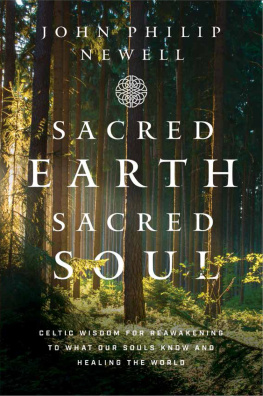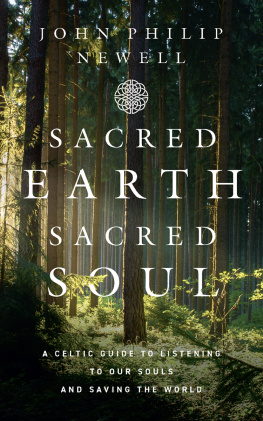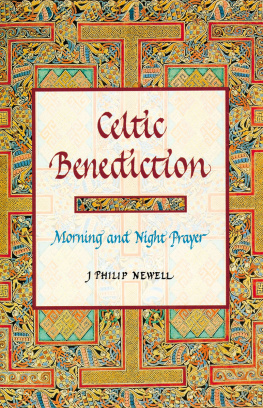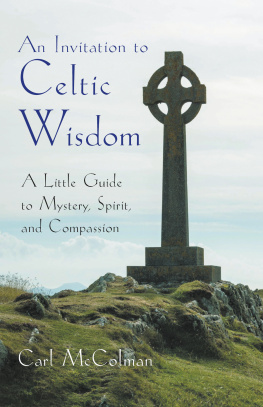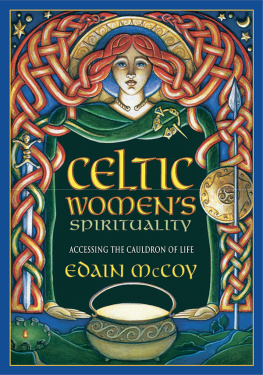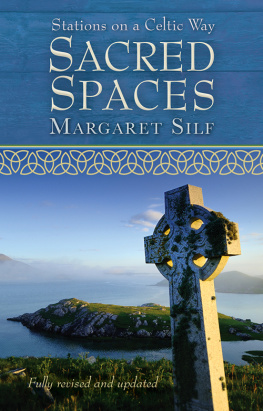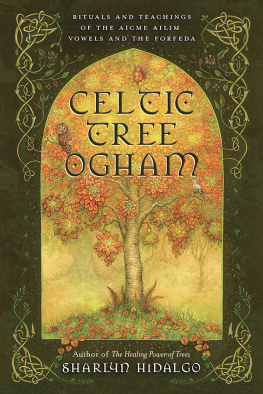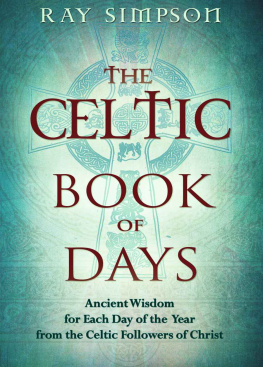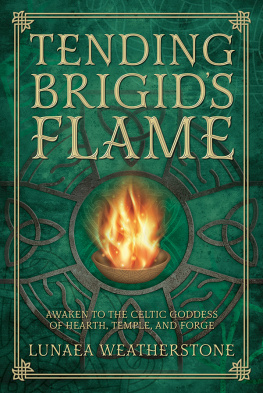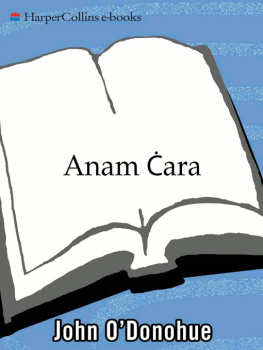To
Ember, Santino, and Lena Rumi
and all the grandchildren of the world
that they may inherit the earth
and live in love with her
Contents
We know things in the core of our being that we have not necessarily been taught, and some of this deep knowing may actually be at odds with what our society or religion has tried to teach us. This book is about reawakening to what we know in the depths of our being, that the earth is sacred and that this sacredness is at the heart of every human being and life-form. To awaken again to this deep knowing is to be transformed in the ways we choose to live and relate and act.
The idea that what is deepest in us corresponds to what is true is not a new concept. From the ancient Greek philosopher Plato to the twentieth-century founder of analytical psychology, C. G. Jung, and many others in between, it has been argued that for us to recognize truth, there must be something within us that already knows it. And, most important, we have all experienced this correlation within ourselves and witnessed it in others.
Why was there such concern around the world during the Australian fires of 2019 when millions of creatures were dying in the blaze? Why did the #MeToo movement take off so quickly in recent years in which hundreds of thousands of women came forward to speak out against abuse? Why did the Black Lives Matter protests burst onto the international stage within days of the murder of George Floyd in Minneapolis? In each of these situations, deep down, we knew something sacred was at stake. And we woke up.
The problem is that we keep going back to sleep, or otherwise live in ways that neglect this deep knowing. Thus, the crises that we are in the midst of today, whether ecological, political, or societal, stem from the fact that we treat the earth and one another as less than sacred. All these critical issues are interrelated. The way we have wronged the earth is the way we have dishonored the feminine or belittled the other, whether that is the other nation, religion, race, or sexual orientation. We have fallen out of alignment with the deepest truths within us. How are we to awaken again to the sacredness at the heart of all life, the sacredness that is also at the heart of our own being?
The Celtic spiritual tradition is one that has long emphasized an awareness of the sacred essence of all things. This tradition is in fact part of our Western Christian inheritance, although it has been largely forgotten and at times suppressed. It is this lost stream of wisdom that I will be drawing on in these pages to help us remember. It is a way of seeing, a path of awareness, that can be traced through the centuries, forever unfolding, evolving, emerging again and again to serve a consciousness of the sacred at the heart of all life.
What is unique about the Celtic tradition compared to most other Western traditions is that it cannot be reduced to a set of doctrines or beliefs; instead, at its core is the conviction that we essentially need to keep listening to what our soul already knows, either in the particular circumstances of our lives or in matters more universal. We need this awareness among us again today, urgently.
This way of seeing and hearing has a particular lineage. It can be traced historically to the Celtic world, but this is not to say that it is bound to Celtic ethnicity and culture. It goes by other names in other places and times. It is not only for those who wear kilts and play bagpipes, for instance, or those who can claim to have an Irish granny. Nor is it bound religiously. Although the stream of wisdom that I will be drawing on here is largely from Celtic Christian teachers, it resonates with the deep spiritual wisdom of other great religious traditions as well.
The way of seeing that I am speaking about can be accessed by anyone, regardless of ethnic origin or religious background, for it is a way of seeing that is based on what the soul already deeply knows, that both the earth and every human being are sacred. And we can apply this way of seeing to the most pressing issues of humanity and the earth today.
In the Celtic tradition it was said that we suffer from soul-forgetfulness. We have forgotten who we are and have fallen out of true relationship with the earth and with one another. Thus, the path to well-being is not about becoming something other than ourselves or about acquiring a spiritual knowledge that is essentially foreign to us. It is about waking up to a knowledge that is deep in the very fabric of our being, and it is about living in relation to this wisdom.
Many years ago, shortly after I had written one of my earliest books, Listening for the Heartbeat of God, I was giving a talk on its main themes in a little church in Virginia. I was emphasizing the sacredness of the newborn child and the Light of the divine that is deep in every human being. I contrasted this belief with a teaching that has dominated so many other streams of Western Christian thought, the doctrine of original sin, in which it is taught that what is deepest in us or what is most original to our nature is opposed to God rather than being of God.
At the end of the talk a woman in her eighties came up the central aisle of the church with a copy of my book in hand. She was walking so purposefully that the naughty boy in me thought she was going to hit me over the head with it. But I was quite wrong. Instead, she said, I want to show you what I wrote in this book after reading it. She then opened the front cover, and I saw that inside she had written, I knew it! I knew it! I knew it!
I often wish I had asked her for that copy of the book. She had expressed so succinctly what our experience is when we hear a truth that has been long neglected. We may never have heard it before. It may never have been taught to us. But when we do hear it, our response is, Ah, I know this to be true, and some part of me has always known this.
Repeatedly, I hear similar exclamations from men and women in relation to the birth of their children or their earliest experiences of nature. Their words witness to our natural instinct for the sacredness of the birth of new life and of the earth itself. They are speaking of what at some level we all know. Their words have also increasingly led me to see that my primary role as a teacher of spirituality, and the role we can all play for one another in enabling spiritual awareness, is simply to try to utter what the soul already knows.
This knowing may have become buried under layers of cultural and religious conditioning and may need to be awakened. But the wisdom we are trying to give expression to is not just ours alone; it is also our listeners. Our role is simply to set it free in one another, to bring it back up into consciousness. When we do release in each other a fuller awareness of the earth as sacred and of everything that has been born as holy, we will be changed by this awareness, and we will want to change the way the earth and its life-forms are being treated.
Sacred is the right word to convey this Celtic way of seeing, because it is a word that is not bound by religion. Inside the walls of religious practice, we speak of sacred scripture or sacred music, for instance, but way beyond those walls we also speak of the sacred universe or sacred moments. The word points with reverence to the divine essence of life and the true nature of relationship. When we speak of something as sacred, we are offering it ultimate respect. We are honoring it. We also invoke something of the power and authority of this word when we use the related term sacrilege to speak of the wrongs that are being done to the earth, to the creatures, and to other human beings. Etymologically,

